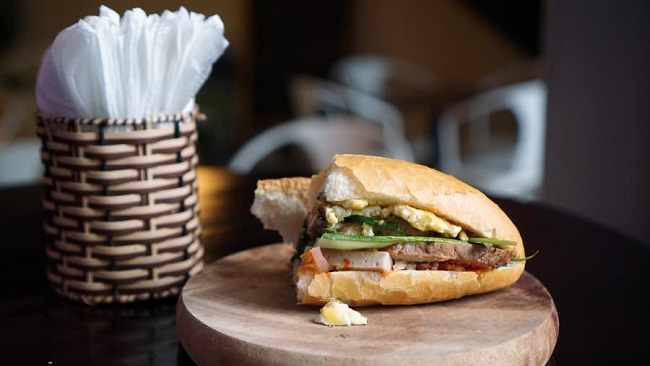Maersk rolls out electric trucks for inland transport in Vietnam
A.P. Moller–Maersk will deploy a fleet of heavy-duty electric trucks for inland container transport in Vietnam starting in the first quarter of 2026.




Fast lifestyle and a changing consumption trend have become the motive force for the fast food boom, but when entering Vietnam, world famous brands seem not to catch on very well.

According to Statista, McDonald's is currently the world's most valuable fast food brand in 2018 with $126 billion, far ahead of Starbucks with $44.5 billion. Another famous brand in Vietnam is Burger King, valued at $ 6.6 billion.
It is clear that the fast food industry is thriving in almost every corner of the world, valued at $651 billion, led by McDonald's, Starbucks and Burger King.
Recently, McDonald's has become a household name in many Asian countries. In Japan, after a decade, Burger King has opened 98 stores. In China, a country with nearly 1.4 billion people, McDonald's is the second largest fast food chain after KFC, according to CNBC.
But strangely, these brands seem not to do so well in Vietnam.
In 2014, McDonald’s the giant officially appeared in Vietnam with the first store in Ho Chi Minh City. In early December 2017, McDonald's debuted in Hanoi, located near Hoan Kiem Lake, attracting a lot of Vietnamese and foreign tourists.
At launch, McDonald's set a goal of opening hundreds of stores within 10 years but until now, the number reached only 17 overall the country and only one store in Hanoi after four years.
Burger King also showed great ambition when it poured $40 million into the Vietnamese market in 2012, wishing to develop a chain of 60 stores in prime locations and spread across other provinces by 2016. However, by now, Burger King has only 13 stores in Vietnam.
One of the reasons why fast food chains do not grow as strongly as expected in Vietnam is that they are not "fast" enough.
In Western countries, for example, people like to buy burgers at fast-food outlets because they can eat on the streets or between classes. However, in Vietnam - a famous food paradise to international tourists, finding “fast food” is much easier and quicker. Street food has long been an indispensable part of the Vietnamese.

Besides, price is also a factor that drives many Vietnamese diners away from fast food brands. Compared to other competitors in the fast food industry, on average, most of McDonald's products have higher prices. This brand also has the lowest discounted combo compared to KFC, Lotteria and Jolibee, according to Q&Me Vietnam Market Research.
According to statistics from the European Commission reported by CNBC, food accounted for a significant share of the Vietnamese incomes, of which 78 per cent was for street food and only 1 per cent was for fast food.
Compared to normal meals, a meal at McDonald's or Burger King can be double or even triple as expensive as food at street vendors or local restaurants. McDonald's menu has shown the shift to match the demands of the Vietnamese market. It is the price that troubles consumers.
Lien, a customer to McDonald's on a weekend evening near the Old Quarter of Hanoi, said, "I took my two children to the Walking Street, so we have dinner here, but the portions are a bit small to adults like me, and with the same amount of money, we can eat a lot of other dishes at the Old Quarter.
According to CNBC, from 2016 to 2018, the number of Vietnamese fast food diners decreased by 31 per cent while the number of street food diners increased by 70 per cent, indicating the negligible influence of famous fast food brands in Vietnam.A.P. Moller–Maersk will deploy a fleet of heavy-duty electric trucks for inland container transport in Vietnam starting in the first quarter of 2026.
The partnership aims to expand the system of charging and battery swapping stations, providing Grab driver-partners and other EV users with easy access to flexible and reliable charging solutions.
Samsung Vietnam appoints Nguyen Hoang Giang to SEVT senior leadership, the first Vietnamese executive in the company’s local manufacturing units.
Michelin is undergoing a strong transformation by applying AI and smart analytic, helping lead the smart, safe, and sustainable mobility revolution in the Industry 4.0 era.
LG Innotek Vietnam Hai Phong secured a $200 million IFC loan as revenue slows, aiming to expand camera module production while meeting sustainability targets.
For Koen Soenens, Sales and Marketing Director at DEEP C, empathy is a compass that guides major deals, the way a leader builds a team, and the ambition to create a sustainable industrial zone that carries a Vietnamese identity.